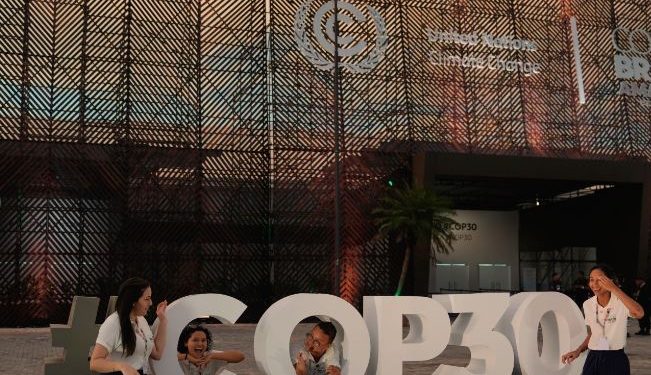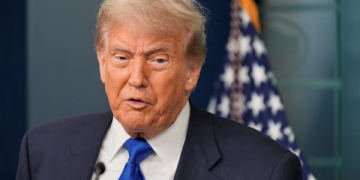Even after running overtime for more than 18 hours, the COP30 summit at Belém, Brazil, concluded with a compromise agreement that failed to secure a pledge to phase out fossil fuels. In fact, the terms “fossil fuels” were absent from the COP30 climate pledge. The final draft agreement, adopted by nearly 200 countries, underscored both the resilience and the limitations of climate multilateralism at a time of heightened geopolitical tension and leadership vacuums.
Nevertheless, two weeks of intense negotiations in the Amazon rainforest city challenged the assumption that global climate diplomacy is losing steam. Delegates approved an eight-page document calling for stronger national climate goals and greater financial support to vulnerable nations. Yet, the summit’s most contentious issue—how and when to transition away from fossil fuels—once again exposed entrenched divides among major economic powers of the Global North and emerging economies of the Global South.
The absence of the United States, the world’s largest emitter, loomed large. President Donald Trump declined to send a delegation to the summit, continuing his administration’s withdrawal from global climate leadership. On the other hand, China, the world’s second-largest emitter, maintained a cautious and self-focused posture, offering little indication that it was prepared to fill in the leadership void.
The summit’s defining tension centred on fossil fuels, the biggest culprit of global warming. More than 80 countries, including Colombia, the UK, Germany and Kenya, backed a proposal for a formal roadmap to phase out oil, gas and coal. But when Brazil released a draft that omitted such language, frustration erupted. COP30 President André Corrêa do Lago pledged to create a separate initiative over the next year focused on a “just transition” away from fossil fuels, earning applause but falling far short of the binding plan many hoped for.
The European Union (EU) led the charge for stronger wording, warning that the summit risked failure without a clear fossil-fuel roadmap. Yet the final text only “recalls” the COP28 agreement to transition away from fossil fuels and urges countries to “voluntarily” accelerate climate action. Behind the scenes, EU delegates reported being “isolated,” with several emerging economies casting them as villains for pushing language that oil- and coal-dependent nations viewed as economically threatening. Saudi Arabia, Russia, India and others resisted any binding commitments, highlighting the persistent global divide over responsibility and pace of transition. The stalled fossil-fuel debate served as a reminder that while almost 200 countries agreed in theory during COP29 in Dubai to phase out fossil fuels, consensus on practical steps still remains elusive.
The political atmosphere at COP30 contrasted sharply with recent summits held in countries with restricted civil liberties. Tens of thousands marched through Belém demanding stronger climate action, while indigenous activists blocked access to the conference’s Blue Zone, insisting on a direct dialogue with Brazilian officials. With COP31 set for Turkey, a country where political freedoms have sharply declined in recent years, such scenes may not recur next year.
COP30’s compromise deal avoided diplomatic collapse, sparing Brazilian President Luiz Inácio Lula da Silva a political setback. But it also reflected a fractured global landscape where competing national interests, absent leadership, and economic anxieties continue to hamper progress.
All these things converge at a time when scientists have already warned that existing national commitments to cut carbon dioxide emissions are not enough to keep world temperatures from breaching 1.5º Celsius above industrial levels, a scenario that could unleash the worst impacts of climate change on the planet and its inhabitants.






































